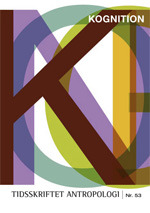KULTUREL VIDENSDIVERSITET: Om videnssystemers lukkede ontisk-epistemiske fantasier og nødvendigheden af vidensmægling
DOI:
https://doi.org/10.7146/ta.v0i53.106729Abstract
Cultural diversity is often taken to be something visible. We perceive others as different
from us on the basis of their different colours of skin, signs of gender, age, their clothes
etc. In this article I argue that we should be more attentive towards the invisible diversity.
This includes an increased focus on the processes behind our perception of cultural
diversity in the visible world. I argue that cultural learning processes are what can be
recognized as cultural differences. Learning involves an incorporated knowledge of
practice. When this normally tacit body knowledge is called forth in confrontations,
brokers are needed who can understand better the often misunderstood words spoken
in conflicts. The incorporated knowledge makes words meaningful for some, who share
the learning in practice the words refer to, and unintelligible for others, who do not. Such
brokers are important in open conflict, but they are perhaps most important when we
naively accept communicated messages from influential people. We need brokers who
know how to translate the practice of everyday body knowledge in cultural worlds –
even when we from visible surfaces consider us as part of the same culture. We need
brokers who can open up complexities, where none were seen and who can make us
understand that even apparently innocent words and appearances can be understood in
deeper ways demanding a new form of incorporated knowledge. In the “world of physics”,
I argue, such brokers are necessary for a more democratic world. The most likely brokers
are anthropologists, who do not settle for surfaces, but insist on reflecting on their own
incorporated cultural learning processes.
Downloads
Published
How to Cite
Issue
Section
License
Ophavsretten til artiklerne i Tidsskriftet Antropologi tilfalder forfatteren.
Artikler publiceret i Tidsskriftet Antropologi må citeres, downloades og videresendes for ikke-kommerciel brug, under forudsætning af normal akademisk reference til forfatter(e) samt tidsskrift, årgang, nummer og sider. Artiklerne må kun genudgives med eksplicit tilladelse fra forfatter(e) og tidsskriftet.


